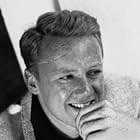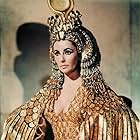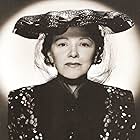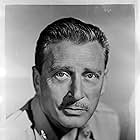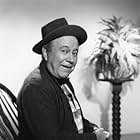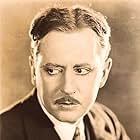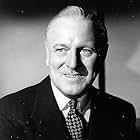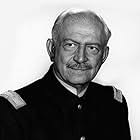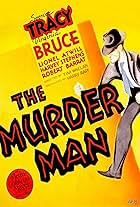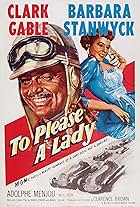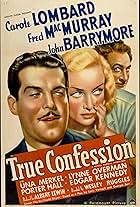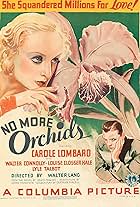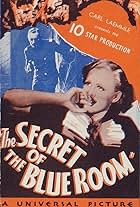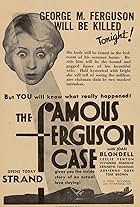PUNTUACIÓN EN IMDb
5,9/10
585
TU PUNTUACIÓN
Añade un argumento en tu idiomaA law school graduate is hired by a top law firm, but hides from them a secret about a problem he has. He is so allergic to alcohol that one whiff of it and he passes out like a light.A law school graduate is hired by a top law firm, but hides from them a secret about a problem he has. He is so allergic to alcohol that one whiff of it and he passes out like a light.A law school graduate is hired by a top law firm, but hides from them a secret about a problem he has. He is so allergic to alcohol that one whiff of it and he passes out like a light.
Dino Bolognese
- Alumni Dinner Waiter
- (sin acreditar)
Cliff Clark
- Albert Johnson
- (sin acreditar)
Lyle Clark
- Veteran
- (sin acreditar)
Tristram Coffin
- Jenkins - B.P.E. & H. Associate
- (sin acreditar)
Argumento
¿Sabías que...?
- CuriosidadesThe second "adult" role for Dame Elizabeth Taylor, although she was only 17 years old during production. MGM billed the British thriller Traición (1949) as her first.
- PifiasDavid, a World War II Army Air Corp veteran, pulls a Nazi helmet out of his duffel bag.
- Citas
David Muldon: Why couldn't I just have gotten shot in the war, like everybody else?
- ConexionesReferenced in Watch the Birdie (1950)
Reseña destacada
Nineteen-fifty can't have been an accommodating year for a drama with a `progressive' axe to grind, so writer/director Norman Krasna opted for stealth: He wrapped it in a simple-minded screwball plot. Alas, the comedy takes an offensive, loutish turn while the social commentary ends up trivialized, an afterthought.
Van Johnson, valedictorian of his law school class, interns at a white-shoe firm but hides an awkward secret. In France during the war, a bombing raid on a monastery almost caused him to drown in Napoleon brandy. Ever since, he has zero tolerance for booze, in a way that's different (but not entirely so) from abnormal drinkers who sometimes refer to their `allergy' to alcohol; even a whiff sets him off into sustaining conversations with floor lamps and sheep dogs, like another inebriate of that year, Elwood P. Dowd. But pains are taken to stress that he's not `an alcoholic.' Luckily Elizabeth Taylor, daughter of the firm's head, rescues him from embarrassment and sets out to `cure' him.
In the Scotch-and-martini days of post-war drinking, maybe audiences swallowed the fallacy that Johnson's aversion to spirits was a crippling obstacle to his happiness and success; at one juncture he even laments, `Why couldn't I just have been shot in the war?' (The unthinkable is never proposed that, like millions of others, with and without problems, he simply abstain.)
Then, about halfway through, the movie suddenly springs its `serious' theme. Johnson is lied to about an incident of anti-Asian discrimination in which his firm is involved (this seems courageous until it dawns that a Jim Crow incident could never have been used). Everything comes to a head at a self-congratulatory banquet where the partners with the connivance of their wives become merry old pranksters, spiking Johnson's soup in hopes that he'll discredit himself. But, Taylor at his side, Johnson surmounts his disability and blows a clarion call for truth, justice and the American way.
Appealing performances by Johnson, Taylor, Leon Ames, Gene Lockhart and many others help the movie go down rather smoothly. But then The Big Hangover lives up to its title: afterwards, It's foolish, unpleasant and regrettable.
Van Johnson, valedictorian of his law school class, interns at a white-shoe firm but hides an awkward secret. In France during the war, a bombing raid on a monastery almost caused him to drown in Napoleon brandy. Ever since, he has zero tolerance for booze, in a way that's different (but not entirely so) from abnormal drinkers who sometimes refer to their `allergy' to alcohol; even a whiff sets him off into sustaining conversations with floor lamps and sheep dogs, like another inebriate of that year, Elwood P. Dowd. But pains are taken to stress that he's not `an alcoholic.' Luckily Elizabeth Taylor, daughter of the firm's head, rescues him from embarrassment and sets out to `cure' him.
In the Scotch-and-martini days of post-war drinking, maybe audiences swallowed the fallacy that Johnson's aversion to spirits was a crippling obstacle to his happiness and success; at one juncture he even laments, `Why couldn't I just have been shot in the war?' (The unthinkable is never proposed that, like millions of others, with and without problems, he simply abstain.)
Then, about halfway through, the movie suddenly springs its `serious' theme. Johnson is lied to about an incident of anti-Asian discrimination in which his firm is involved (this seems courageous until it dawns that a Jim Crow incident could never have been used). Everything comes to a head at a self-congratulatory banquet where the partners with the connivance of their wives become merry old pranksters, spiking Johnson's soup in hopes that he'll discredit himself. But, Taylor at his side, Johnson surmounts his disability and blows a clarion call for truth, justice and the American way.
Appealing performances by Johnson, Taylor, Leon Ames, Gene Lockhart and many others help the movie go down rather smoothly. But then The Big Hangover lives up to its title: afterwards, It's foolish, unpleasant and regrettable.
- bmacv
- 26 feb 2003
- Enlace permanente
Selecciones populares
Inicia sesión para calificar y añadir a tu lista para recibir recomendaciones personalizadas
Detalles
Taquilla
- Presupuesto
- 1.026.000 US$ (estimación)
- Duración1 hora 22 minutos
- Color
- Relación de aspecto
- 1.37 : 1
Contribuir a esta página
Sugerir un cambio o añadir el contenido que falta

Principal laguna de datos
What is the Spanish language plot outline for Cicatrices del recuerdo (1950)?
Responde







